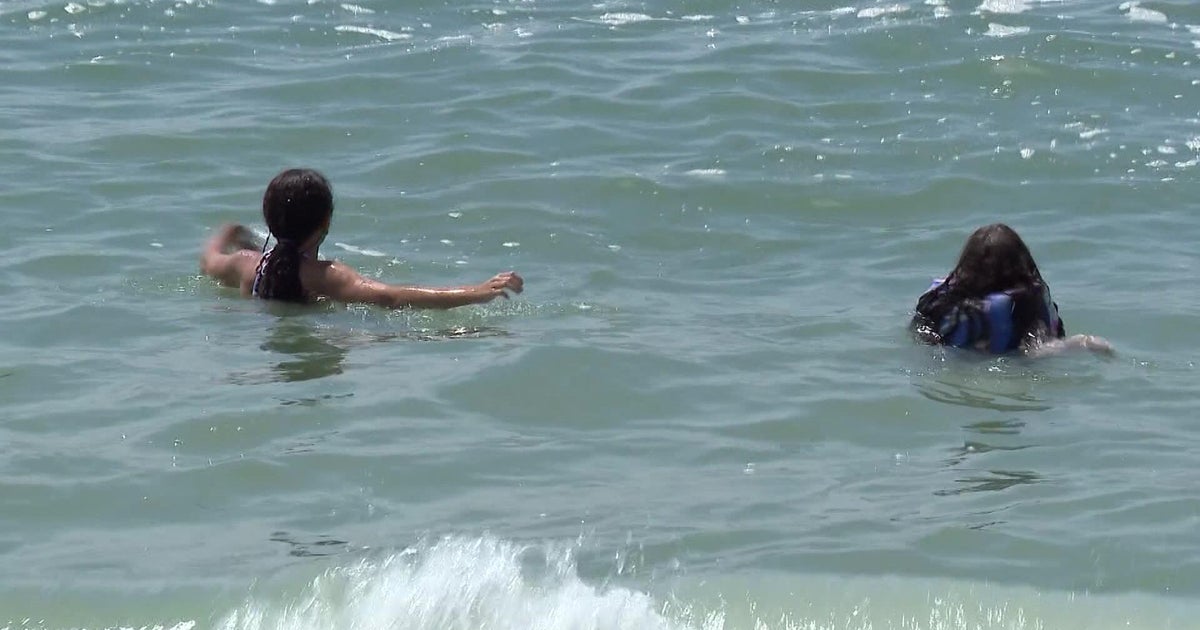Will beachgoers in New York and New Jersey be safe from sharks this summer?
Millions are expected to head to beaches across New York and New Jersey this Fourth of July weekend, but will they be safe from sharks?
Last week, officials said a woman was likely bitten by a shark at Jones Beach, prompting precautions. There will be more drones, plus lifeguards on the lookout, but, as they say in "Jaws," those beaches will be open.
Still, with this incident — and the 50th anniversary of the classic shark attack film — on their minds, some beachgoers are wondering, are sharks a bigger problem? CBS News New York's Dick Brennan asked experts for this edition of "Question Everything."
Data shows shark attacks are rare across U.S.
Experts say there's more marine life in the water, including sharks, in part because waters have gotten warmer and they're not as over-fished as they used to be, so the chances for an encounter are greater.
But Joe Yaiullo, curator and co-founder of the Long Island Aquarium, says humans are not on the menu.
"If we were, the sharks would be lining up off of Jones Beach and Robert Moses and just waiting for these millions of people to go in the water," he said. "So any incident that usually happens is an inquisitive incident. A shark doesn't have hands to feel with, so they're going to mouth something. They get a lot of tactile information by mouthing something."
The most recent statistics from 2024 show attacks are rare. There were just 28 unprovoked shark bites and one fatality in the entire United States last year.
"Many more people die of bee stings. Many more people die driving to the beach," Yaiullo said.
Teen surfer undeterred after shark encounter off Fire Island
Eighteen-year-old Maxwell Haynes, of Islip, knows what it's like to encounter a shark firsthand — or in this case, foot.
"It was terrifying. It was like a primal fear I can't even describe," he said.
Three summers ago, Haynes was surfing at Kismet Beach off Fire Island when he got the surprise of his life.
"Out of nowhere, I just got bit in my right leg," he said.
Haynes said he knew right away it was shark.
"I freaked out. I started kicking and then it just let go after a few seconds," he said.
Haynes was bit in water that was just 4 feet deep.
"My foot probably just looked like any other fish," he said.
The attack, or encounter as experts like to say, ended fast; the shark swam off, and Haynes, who was just 16 at the time, recovered quickly.
The incident hasn't scared him away, though. He's now a lifeguard and an EMT, and he's still surfing, even around sharks.
Dick Brennan goes diving with sharks
Brennan decided to get his own up-close encounter. He entered the Long Island Aquarium's shark tank in a large cage alongside dive expert Barry Lipsig.
Seven sharks, including some sand tiger sharks, were inside the tank, but they seemed oblivious to the divers, minding their own business.
Experts say sharks don't want to bite humans, but they'll sometimes nip at swimmers and surfers, and even that can be dangerous.
"If you're in the water and you do see that fin, could be a shark fin. Safest bet is just get out of the water," Yaiullo said.
So what's the best way to avoid sharks? Experts say don't swim at dawn or dusk, and don't swim around large schools of fish or seals.








